
Guests |
|
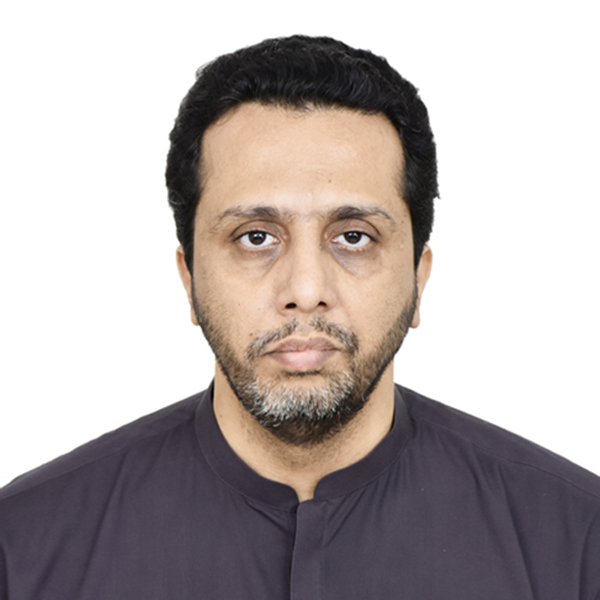 |
Mr. Hamood-ur-Rehamn (Guest of Honour)
Commissioner, Commissionerate of Afghan Refugees Sindh, Karachi
The Commissionerate for Afghan Refugees, Sindh (CAR-Sindh) functions as the provincial office of the Ministry of SAFRON, Government of Pakistan, operating under the Chief Commissionerate for Afghan Refugees (CCAR) in Islamabad. Established in 2003 through a Tripartite Agreement involving the United Nations High Commissioner for Refugees (UNHCR), the Government of Pakistan (GOP), and the Government of Afghanistan, CAR-Sindh is dedicated to facilitating the safe and dignified voluntary repatriation of Afghan refugees. Along with this CAR-Sindh is in coordination with esteemed partners such as UNHCR, GIZ, UN-IOM, and various NGOs/INGOs, CAR-Sindh diligently works to enhance the well-being of Afghan refugees. The organization actively monitors the endeavors of numerous Operational Partners (OPs) and Implementation Partners (IPs), providing unwavering support to augment the living conditions of Afghan refugees in the Sindh province as per their evolving needs. Moreover, CAR-Sindh maintains robust coordination with governmental departments and Law Enforcement Agencies (LEAs) at the provincial level, with a focused approach towards safeguarding, education, and healthcare provisions for Afghan refugees.
|
Keynote Speakers |
|
 |
Dr. Muhammad Imran Yousaf (Sitara-e-Imtiaz)
Mental Health Psychologist; Member American, Canadian, Bristish & Pakistan Psychological Association; Member Clinical TMS Society, USA; Master Trainer - NLP & Clinical Hypnotherapy, USA; Founder - Transformation International Society; MD - Multinational, Jofa Group (Movenpick); Awarded among top 100 CEOs of Pakistan; Diplomat, Consul General a.h. Philippines; Developer of Mental Health programs for Universities; Celebrity with over 1000 TV Programs; Recipient of National Awards from Netherlands, Philippines, Canada & USA
Topic: Resilience and Coping
Abstract: Afghan refugees are the world's third-largest displaced population. Displaced communities are vulnerable to a variety of mental health issues due to the cumulative effects of adversities encountered before, during, and after the fight, such as conflict, upheaval, exile, and resettlement. Social isolation, a lack of access to quality healthcare along with poor living conditions, unemployment, language barriers, and difficulty navigating to a new country can all contribute to the mental health burden experienced during migration and resettlement and prevent migrants from integrating into the host country. Resilience and adaptive coping have been highlighted as important potential protective factors against adversity and their consequent effects on mental health. The American Psychological Association has described resilience as "a process of good adaptation in the face of adversity, trauma, tragedy, threats, or other significant sources of stressors". Coping is described as the use of cognitive and behavioral techniques to deal with and manage stressful situations or unfavorable psychological and physical effects. Extensive research evidences advocate that migrants and refugees with higher degrees of resilience and adaptive coping mechanisms had lower levels of psychological distress, or, to put it another way, better mental health and overall well-being. Therefore, a coordinated multiservice approach is required to support mental health and integration of refugees. A potential avenue for intervention development to support mental health and psychological well-being may lay in enhancing psychological resilience and coping mechanisms among Afghan refugees. |
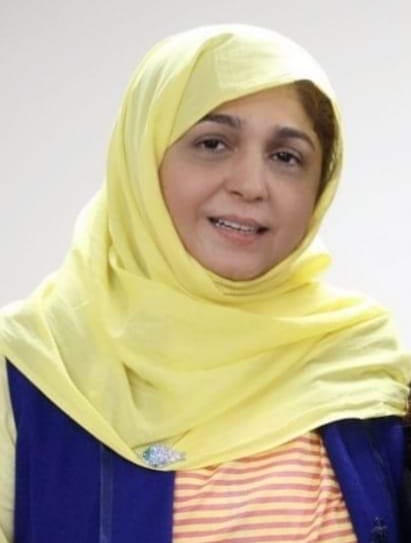 |
Prof. Dr. Zainab F. Zadeh
Prof. Dr. Zainab F. Zadeh is a consultant clinical psychologist, currently serving as Professorial Scientist and Head Child and Adolescent Mental Health Division at Pakistan Institute of living and learning, Karachi, She has served as Former President Pakistan Association of Clinical Psychology and former Dean Faculty of Professional Psychology Bahria University She has been trained in International Mental Health Leadership Program from Center for International Mental Health, University of Melbourne, Australia. She is an educationalist and national level trainer having conducted several training workshops at national international level Dr Zadeh is also serving on editorial and advisory board of several national/ international journals. She is an expert in developing culturally adapted psychological interventions and mental health related curriculums.
Topic: Mental Health and Wellbeing of Refugees
Abstract: The prevalence of common mental disorders such as depression, anxiety, and post-traumatic stress disorder (PTSD) tends to be higher among refugees. Many migrants and refugees lack access to mental health services or experience barriers in accessing. Maternal health of these refugee particularly mothers living in camps or in conflict areas is one of the most important issues needing special attention and intervention The mental health needs of migrants and refugees should be addressed by organizing inclusive and accessible promotion and prevention programs; strengthening mental health as part of general health services; and ensuring timely diagnosis, treatment, and rehabilitation. Considering the significance of the issue a study entitled “Feasibility of Culturally Adapted Manual Assisted Brief Psychological Intervention (CMAP) Plus Learning through Play (LTP) for Refugee Mothers with History of Self-harm in Pakistan “ is ongoing by Pakistan institute of Living and Learning . The aim of this study is to assess the feasibility & acceptability of CMAP plus Learning through Play (LTP) in refugee mothers with history of self-harm having children 0-33 months. The main Objectives are To assess if C-MAP Plus reduced repetition of self-harm in refugee mothers having children aged between 0-33 months. To determine if the intervention improves infant development and maternal attachment. To determine participants experiences with the intervention at present 40 mothers enrolled in the study. The target is to recruit 80 mothers. |
Guest Speakers |
|
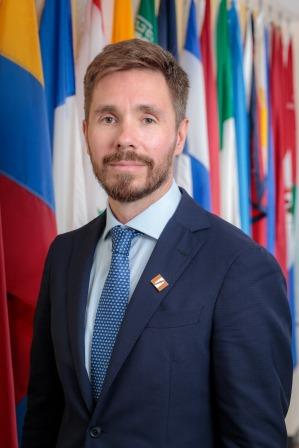 |
Alexey Dudarev
Protection Officer, UNHCR Karachi
Mr. Alexey Dudarev has been working for UNHCR in different roles since 2010 and was posted in Hong Kong, Cambodia, Russian Federation, Lebanon, Iraq, Syria and Yemen. Prior to UNHCR he also worked for the Russian Red Cross. Mr. Dudarev holds two Master’s degrees: first in social psychology from SaintPetersburg State University in Russian Federation, and another in international relations from Fletcher school of Law and Diplomacy of Tufts University in Medford, MA, United States.
Topic: Mental Health and Psychosocial Support (MHPSS) for Afghan Refugees: UNHCR’s Perspective
Abstract: This presentation explores the critical but often overlooked issue of mental health and psychosocial well-being among Afghan refugees in Pakistan. The broad term "Mental Health and Psychosocial Support" (MHPSS) encompasses various challenges, including severe mental health conditions such as psychosis, bipolar disorder, and severe depression, as well as common mental disorders like depression, anxiety disorders, and post-traumatic stress disorder. Psychosocial distress and substance use also significantly impact the lives of these refugees. Findings from qualitative assessments and epidemiological surveys shed light on the mental health situation of refugees. Qualitative assessments reveal that mental health issues, including depression, chronic stress, and insomnia, are widespread among Afghan refugees. These issues manifest differently based on gender and age, with Afghan women highlighting discrimination, violence, and limited freedom as major triggers, while men point to the lack of livelihood opportunities. Child protection risks and incidents of violence remain underreported due to social norms and ineffective reporting mechanisms. Epidemiological surveys in Afghanistan consistently show high levels of symptoms related to depression, anxiety, PTSD, and poor social functioning, especially among women. Similar issues persist among Afghan refugees in Pakistan and Iran, linked to war-related events, forced displacement, and enduring poverty. Culture and gender are particularly important in shaping mental health perceptions and responses. Consequently, culturally relevant interventions and community-based psychosocial support are needed to effectively address mental health issues in the Afghan refugee community. Moreover, it is important to maintain core mental health services and remove barriers to access, ultimately advocating for the development of sustainable systems of care that reflect the values and cultural nuances significant to Afghan refugees. In conclusion, addressing the mental health needs of Afghan refugees in Pakistan demands a comprehensive, culturally sensitive approach that empowers communities and fosters resilience while ensuring equitable access to mental health services. |
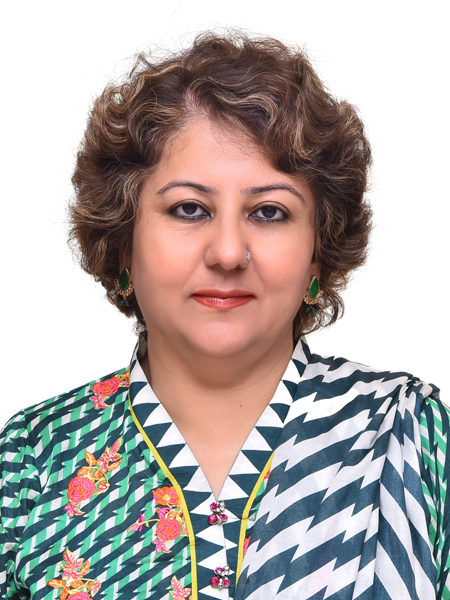 |
Dr. Nargis Asad
Dr.Nargis Asad is an Associate Professor and Clinical Psychologist in the department of Psychiatry. Currently she is also the chair of the department of Psychiatry at AKU . Dr Asad , is actively involved in clinical and research work surrounding women / adolescent mental health, domestic violence and suicide. Another of her overarching professional interest is in the area of Trauma, she is the co-founder of Mental Trauma and Resilience Interest Group ( M-TRiG) at AKU. One of the primary focus area of this interest group is abuse and violence on children and women. Her research work is primarily multidisciplinary with colleagues at AKU and international partners.
Topic: Creating a safety network for the vulnerable: preventing trauma & abuse in refugee population
Abstract: There has been decades of political unrest and instability in the region, Pakistan due to its geo-political situation is directly affected by political instability in the neighboring countries. Past almost three decades have witnessed Afghan citizens migrating to Pakistan for safety and security reasons. The large influx of refugees undoubtedly creates a huge burden on the already fragile infrastructure of the host country. Globally, there is substantial evidence highlighting the trauma of loss of houses, families and getting displaced from one’s homeland. The proposed presentation will discuss the risks of abuse and trauma faced by children and youth in refugee camps. The authors propose a psycho-social framework based on public health interventions to build a safety net so abuse and trauma can be avoided, and resilience can be maximized for children and families.
|
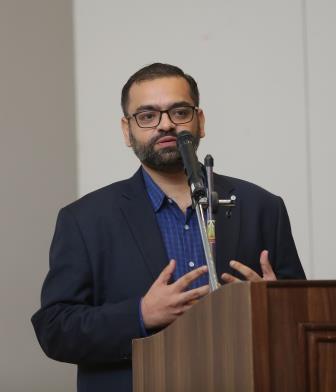 |
Mr. Zuhaib Shaikh
HOD for Alumni Pathways at TC
Zuhaib Shaikh has over 15 years of experience in Education, Social Impact, and Leadership Development. With extensive experience in working with marginalized communities, he is currently Head of Alumni Pathways at The Citizens Foundation, overseeing strategy, programs, and interventions to enable access and opportunities for higher education and employment for underprivileged youth across Pakistan.
Topic: Building Resilience in Marginalized Youth
Abstract: In the urban and informal landscapes where Afghan youth find themselves displaced, building resilience becomes a paramount concern. This topic delves into the multifaceted challenges faced by these young individuals, from the trauma of conflict and displacement to the complex process of cultural adjustment. It highlights how education emerges as a potent tool not only for academic development but also for promoting psychological well-being. By discussing initiatives that ensure access to quality education and vocational training, the talk illustrates how empowerment and skills development can be key factors in resilience-building. Furthermore, it explores the role of community engagement and support networks in fostering resilience, with a focus on initiatives led by the community itself. Psychological first aid also plays an integral role in these efforts, addressing the impact of trauma and providing counseling. Finally, the talk offers insights into building resilience by emphasizing the importance of holistic approaches that consider the individual's unique experiences and needs. |
Panelists |
|
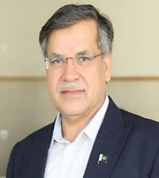 |
Meritorious Prof. Dr. Muhammad Iqbal Afridi (TI)
MBBS, MCPS, FCPS Psych, FPSIM (Pak), FACP(USA), FRCP(Ireland), DEBM( Denmark), FRCP(Edin), FRCP(London)
HEC DNP (Distinguished National Professor), Jinnah Sindh Medical University/JPMC.
Adjunct Prof. Baylor College of Medicine, USA.
Editor-in-Chief, Journal of Pakistan Psychiatric Society.
Country Director, Memory First Aid Inter. UK.
Member of Senate, Bolan University of Medical & Health Sciences.
Member, Sindh Mental Health Authority.
Member, Governing Body, Institute of Clinical Psychology and Dr. AQ Khan Institute of Behavioural Sciences, Karachi.
International Distinguished Fellow, American Psychiatric Association.
Former Dean, JPMC, CPSP, JSMU, Chairman/HoD, Psychiatry & Behavioural Sciences, JPMC/JSMU, & President, Pakistan Psychiatric Society.
MD, Pak International Hospital, DHA-I, Karachi
Dr. Afridi has published 116 research papers/articles besides 02 Books, 7 Book Chapters, Electronic & Digital Production. He has Trained 382 FCPS and received 11 international and 16 national award including Tamgha-I-Imtiaz (Medal of Excellence).
|
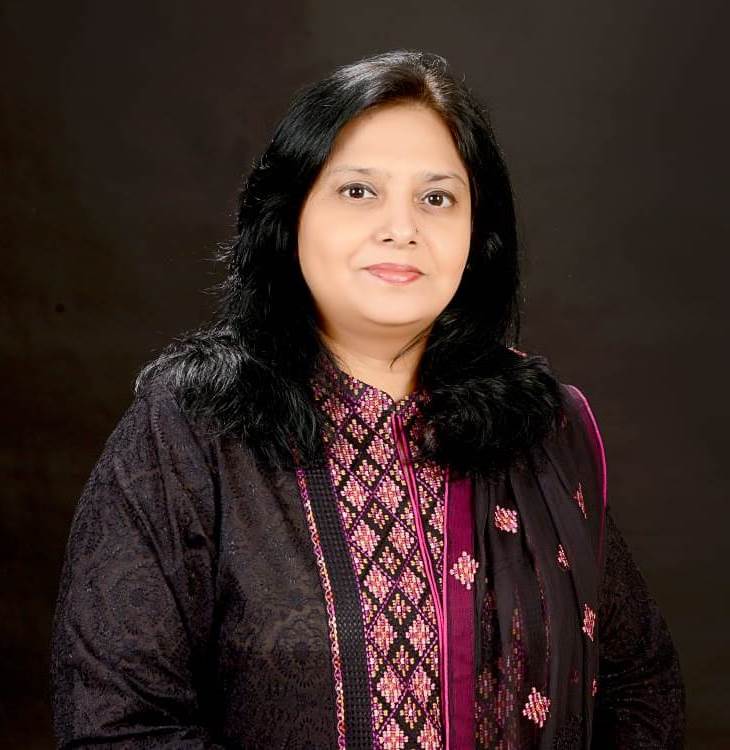 |
Dr. Uzma Ali
Director, Institute of Clinical Psychology, University of Karachi
Prof. Dr. Uzma Ali (Ph.D), is a Director of the Institute of Clinical Psychology, University of Karachi, Pakistan, affiliated since 1997. She is Consultant Clinical Psychologists and has expertise in psycho-diagnosis, psychotherapies, family and marital counseling, Rehabilitation, child guidance and career counseling. She is a Life time Member of Pakistan Psychological Association (PPA Since 2012) and an International Member of American Psychological Association (APA, Since 2022). she has experience of working with persons with SUD, she has also completed Universal treatment curriculums (7 courses) & Refresher Course of Core Treatment Curriculum organized by Columbo plan and International Society of Substance Use Professionals (ISSUP). She is an Advanced Member of ISSUP, USA. She is also Master Trainer of “Substance Abuse Prevention Skills” and “Screening Brief Intervention and referral for Treatment”. Since 2015 she is also associated with Madadghar helpline, on board member is United Nation Women Protection Unit, Sindh. She is affiliated as Volunteer with All Pakistan Women Association since, 2013.
|
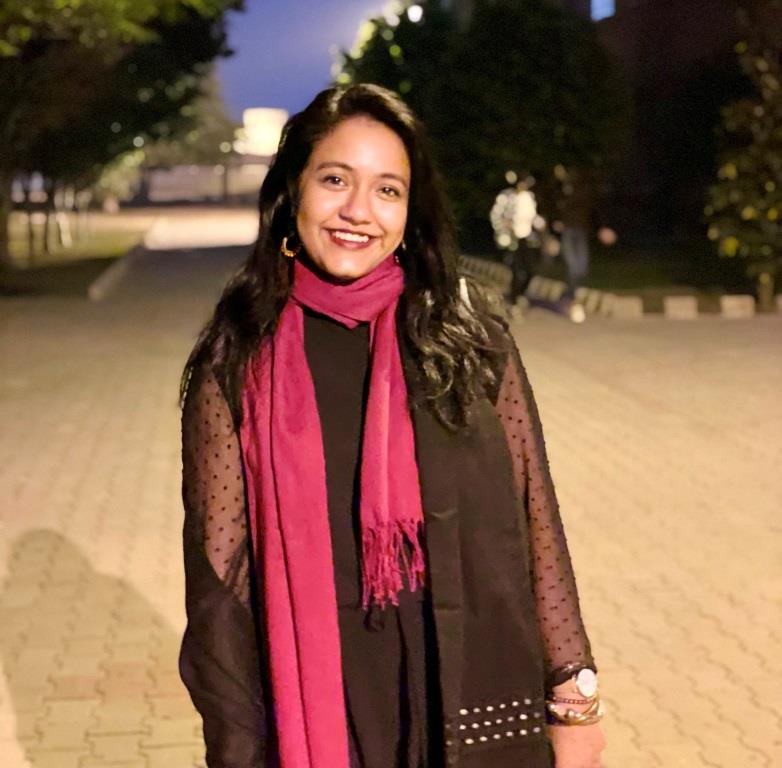 |
Ms. Sarah Ahmed
Technical Advisor for the Refugee Management Support Program, GIZ
Sarah Ahmed is a development sector professional with around 10 years of experience in the areas of human rights, peacebuilding and post-conflict transformation. Passionate about positive social change and cultivating resilient communities, Sarah has worked mainly on youth-focused programs all across Pakistan particularly focusing on vulnerable and underserved subgroups such as minorities, people with disabilities, and refugees. Sarah currently works as a Technical Advisor for the Refugee Management Support Program of GIZ, overseeing the strategy and implementation of community spaces for Afghan refugees and host communities. |
 |
Ms. Maymoona Saadi
Consultant Psychologist, WHO
A dynamic, motivated & enthusiastic professional working in health programs especially mental health and academia since the last 7 years. She has worked in the clinical setup at Institute of Behavioral Sciences Dow University/Hospital Karachi and Fazaia Medical Collage Air University Islamabad for approx. 5 years. She also has been associated with academia as a lecturer in NUST and International Islamic University Islamabad. Currently she is working as a National Consultant to Mental Health in WHO Country office (WCO) Islamabad. Here she has been involved in coordination and planning of MHPSS (Mental health and psychosocial support) activities all over Pakistan. Moreover she is the key trainer of mhGAP a project of WHO on the integration of mental health services in primary health care settings, school mental health programme, and integration of mental health with TB a pilot project of WHO.
|
Poster Judges |
|
 |
Dr. Marsela Nyawara
Emergency Health officer, IOM Pakistan
|
 |
Prof. Dr. Zainab Bhutto
Dean and Director, Institute of Professional Psychology, Bahria University, Karachi
Prof. Dr. Zainab Hussain Bhutto is PhD in Clinical Psychology from the Institute of Clinical Psychology, University of Karachi. Currently she is serving as Dean Professional Psychology Bahria University and Director/ Principal Institute of Professional Psychology, Bahria University Karachi. She has more than 18 years’ experience in the field of Psychology and is an active researcher with national and international research publications. 70+ undergraduate, postgraduate and PhD theses are completed under her supervision. Moreover, she takes a keen interest in community projects on a national level. She was also involved in dealing with the Coronavirus related anxiety and stress related issues through online counselling. She routinely mentors her postgraduate students to engage in different projects in the field of Clinical Psychology and carry out welfare work for disadvantaged groups. She is member of several National and International organisations like APA, Canadian Association for Play Therapy, PPA and Pakistan Association of Clinical Psychologists(PACP).
|
Prof. Dr. Anila Amber
HOD Psychology Department, University of Karachi
|
|
Oral Presentations |
|
|
Navigating Access to Higher Education in Pakistan for Afghan Refugees: Identifying Aspirations and Challenges through a Mixed Methods Approach M. Hamza Raza (Habib University, Karachi) Abstract: According to UNHCR, Pakistan hosts 1.4 million Afghan (registered) refugees of which half a million are in Karachi. Living in a protracted situation, they have limited access to education and healthcare services and are prone to labor exploitation due to weak laws and inadequate social services. This study explores how Afghan refugees navigate through unequal access to higher education in Pakistan. The study uses a sequential mixed-method participatory-social justice design and has two sample groups: Afghan refugees, and managers of scholarship programs. Data gathering tools include in-depth interviews (n=11) and surveys (n=47) with Afghan refugee students, currently enrolled in or graduated from universities. For support program managers, short structured interviews (n=3) were conducted. Using a participatory approach, the study also involved Afghan refugees participating as co-researchers in the data collection and analysis. The qualitative strand of the study found that documentation process, low language acquisition, and affordability are the major challenges faced by Afghan refugee students in their pursuit to higher education. The quantitative strand shows direct and indirect correlations between accessibility to higher education with parental education levels, gender, birth order, duration of the degree program, and language spoken at home. The study concludes with evidence-driven policy recommendations to address the highlighted challenges. |
|
|
Fostering Empowerment: Education's Role in Enhancing Mental Health Outcomes for Afghan Refugee Women Ms. Obaida Ameen(MPhil Scholar, International Relations Department, University of Karachi) Abstract: In light of the complex interactions between education, gender, displacement, and well-being during the Afghan refugee crisis, this study examines the empowering function of education for Afghan refugee females and its effects on their mental health. The study focuses on the challenges Afghan refugee women face in getting access to higher education in Karachi, Pakistan, and how this affects their mental health. This is made worse by their distress over the total ban on education in Afghanistan and the restricted access to education in Karachi. Through qualitative analysis of interviews, and focus groups, the research highlights multifaceted barriers hindering Afghan refugee women's educational pursuits. Challenges include navigating unfamiliar documentation requirements, negotiating ambiguous equivalency processes, grappling with scarce scholarships, and untangling administrative intricacies. These challenges collectively not only curtail educational progression but also intensify stress, anxiety, and feelings of isolation among Afghan refugee females. The study proposes a holistic framework to address these issues. It advocates targeted awareness campaigns, streamlined equivalency procedures, peer-support initiatives, and digital literacy programs tailored to the unique needs of Afghan refugee women. Moreover, the research underscores the significance of enhancing scholarship availability, improving academic administration, and simplifying enrollment procedures. The report also emphasizes how crucial it is to foster integration between Afghan refugee women and the host society in order to advance social cohesion and mutual understanding. It promotes cultural exchange, public awareness campaigns, and teamwork initiatives as ways to improve Afghan refugee women's general well-being while fostering communal cohesion. In essence, it offers practical recommendations for empowering this vulnerable group through education, thereby fostering improved mental health outcomes and social inclusivity. |
|
|
Impact of Religious Coping on Quality of Life of Afghan Refugees living in Pakistan Javeria Farooq and Dr. Nelofar Kiran(National Institute of Psychology, Quaid-i-Azam University Islamabad) Abstract: The present study aimed to explore the impact of religious coping (positive religious coping and negative religious coping) on quality of life (physical health, psychological health, social relationship and environment) of Afghan refugees living in Pakistan. WHOQOL (WHOQOL Group, 1998) and RCOPE-Brief (Pargament et al., 1998) were used to measure quality of life and religious coping. Sample comprised of 150 Afghan refugees from which 15 participated in phase 1 (pilot study) while 135 participated in phase 2 (main study). The (N=135) main sample comprised of 81 males and 54 females with age group 18-25 (68%) 26-35 (51%) 36-45 (16%). Data collection employed non-purposive and snowball sampling technique and data was mainly collected from Islamabad/Rawalpindi. Findings of the study showed a significant correlation between religious coping and quality of life. Moreover positive religious coping showed a significant correlation with quality of life. There was significant mean difference across age on environment (domain of QoL). Participants of age group 26-35 scored higher than 18-25, followed by 36-45. Gender showed a significant mean difference on social relationship. Male scored higher than females. Marital status showed a significant mean difference on religious coping and positive religious coping. Single individuals scored higher than married individuals. Socio-economic status showed a significant mean difference on quality of life and environment (domain of QoL). Participants belonging from higher socio-economic status scored higher than middle class, which were followed by lower class. Ethnicities also showed a significant mean difference on negative religious coping, quality of life, physical health and environment (domain of QoL). Pashtun and Pashayi scored higher on quality of life, physical health and environment whereas, Hazara scored higher on negative religious coping. Sects also showed significant mean differences on quality of life, psychological health, social relationships and environment (domain of QoL). Sunni scored higher than Shia. Non-significant mean differences were found on family system, education, job status and year of arrival. These findings provided a literature gap for future studies on socio-demographic variables with religious coping, quality of life and their domains. Study also highlighted the significance of religion in life events of Afghan refugees. Assessing these variables is crucial to provide appropriate interventions and coping strategies to Afghan refugees. |
|
|
Psychosocial Correlates of Mental Health of Afghan Migrants: A Systematic Review From Pakistan Maryam Javed, Dr. Aisha Zubair, Nurmeen Bakhtawar Niazi, Maryam Safa, Sarish Afrasayab Abbasi, Mahnaz Naeem Khan, Memoona Naz (National Institute of Psychology, Quaid-i-Azam University, Islamabad) Abstract: This paper synthesizes findings from the published research articles of previous five years, offering insights into the intricate relationship between psychosocial factors and the mental well-being of Afghan migrants in Pakistan. Afghan war has claimed more than 241,000 lives and hundreds of thousands have died due to hunger, disease and injury (Crawford et al., 2021). The intricate interplay between societal norms, gender roles and the power dynamics rooted in the Pakistani culture contributes to the limited stress-coping strategies. The lack of healthy outlets for stress, combined with the limited resources for psychological wellbeing, underscores the urgency of addressing this multifaceted issue. The bulk of prior research has primarily focused on adult male and has been predominantly carried out in the Peshawar and Baluchistan areas of Pakistan. The methods utilized in these studies vary, encompassing qualitative approaches such as semi-structured interviews and focus group discussions, as well as quantitative measures. The researches discuss the impact of challenges on mental health related to unemployment, societal attitudes, and adaptation on the prevalence of gender-based violence. Previous studies also highlight the issue of social and cultural reintegration and how it leads to sense of alienation, deprivation, lack of meaningful progression and identity crisis among Afghan Refugees. Successful integration hinges on language acquisition, social network development, positive local interactions, and access to essential services. Additionally, the papers underscore the mental health difficulties resulting from displacement and trauma, exacerbated by the absence of tailored policies for Afghan refugees in Pakistan. The implications of these comprehensive studies advocate for the development and implementation of all-encompassing policies and interventions. Such initiatives must take into careful consideration the intricate interplay of these multifaceted factors to ensure the provision of holistic support and focus on mental well-being for this vulnerable demographic with particular emphasis on children, adolescents, and women. |
|
|
Posttraumatic growth and financial therapy for social and employment integration for Afghan Migrants in Karachi, Pakistan Vardah Noor Ahmed Bharuchi (Department of Paediatrics and Child Health, The Aga Khan University) Zahyreen Kousar (Institute of Professional Psychology, Bahria University Karachi Campus) Dr. Sidra Kaleem Jafri (Department of Paediatrics and Child Health, The Aga Khan University) Abstract: Conflict and instability in Afghanistan has led to migration to Pakistan. Conflict has brought upon trauma to Afghan migrants along with prolonged uncertainty related to deportation and financial instability. Financial crisis and uncertainty lead to depression, suicide, alcoholism, and psychosomatic problems. To curtail these, a model based on post traumatic growth and financial therapy will be created to foster growth, appreciation of life and responsible financial behavior. This would be a pre-post study with comparison group. Participants will be breadwinners who belong to Afghan community in Karachi, Pakistan. Expected duration of the study is twelve months. Participant size will be calculated using G power based on population living in camps. Instruments used will be sociodemographic questionnaire, Urdu Impact of Event Scale Revised (UIES-R), Post Traumatic Growth Inventory, Responsible Financial Behaviour and Brief Infant-Toddler Social Emotion Assessment and Strengths and Difficulties Questionnaire. There will be three phases: first phase is translation of scales and development of intervention material. Intervention will comprise of cognitive behavioral therapy, narrative and existential therapies. Second phase will include identification of expert companions from community who will be trained, after which intervention phase will start. Third phase is evaluation phase. Data will be analyzed using descriptive statistics, independent samples T-test and repeated measures ANOVA. It is expected that there will be increase in at least one domain of post-traumatic growth and responsible financial behaviour in breadwinners. Children and adolescents from these families will have better social-emotional functioning. |
|
|
Social inclusion- a step toward tolerant society Khalida Rauf (Szabist University, Karachi) Abstract: The present paper aims to explore the meaning of inclusion within the context of social, economic and psychological dynamics of society. How each of these three is linked and promote each other. The idea of reciprocity seems to be woven in the fabric of human capital, which if addressed properly is translated into social capital. The idea of social capital delineates down to cognitive capital, where shared beliefs, values and norms either bring them together or segregate them. Finally, all these result in the emotional health of society. In the second part, few steps have been identified for the formulation and implementation of policy for inclusion. |
|